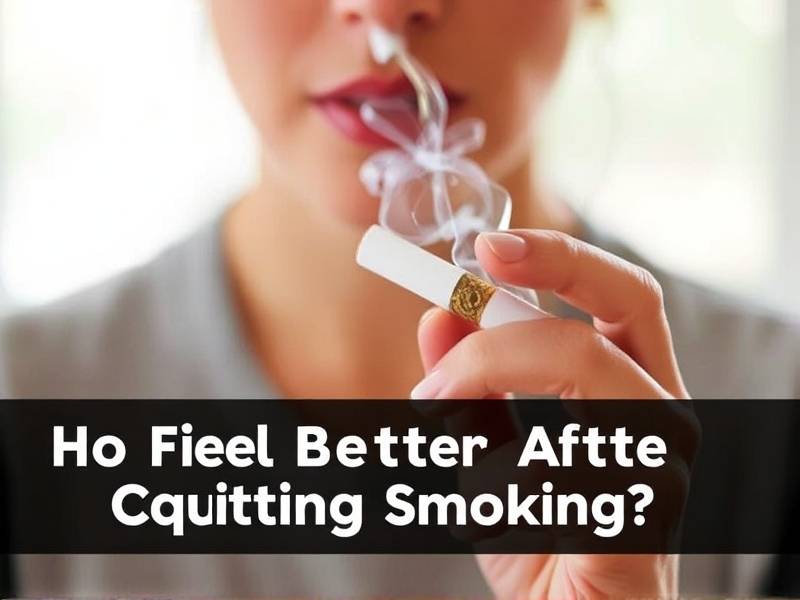How Long Does It Take to Feel Better After Quitting Smoking?
The Journey to Improved Health: How Long Does It Take to Feel Better After Quitting Smoking?
Introduction: Quitting smoking is a significant decision that can lead to numerous health benefits. However, many smokers often wonder how long they will have to wait before they start feeling better. This article explores the timeline of recovery and the various factors that influence the speed of improvement after quitting smoking.
Section 1: Immediate Benefits of Quitting Smoking

After just 20 minutes of quitting, your heart rate and blood pressure begin to decrease. This immediate change can be a powerful motivator for those looking to improve their health. Additionally, within 48 hours, your sense of taste and smell starts to return, enhancing your overall enjoyment of food and drink.
Section 2: Short-Term Benefits (Days to Weeks)
Within the first few days or weeks after quitting, many individuals experience withdrawal symptoms such as cravings, irritability, and anxiety. However, these symptoms typically subside within a few days or weeks. During this period, your body starts repairing some of the damage caused by smoking.
- After two weeks, your lung function begins to improve.
- After three months, your circulation improves significantly.
- After nine months, any shortness of breath you may have experienced due to smoking decreases.
Section 3: Medium-Term Benefits (Months)
After several months of being smoke-free, you'll continue experiencing improvements in your health:
- After one year, the risk of coronary heart disease is halved compared to that of current smokers.
- After five years, the risk of stroke is reduced by about the same amount.
- After ten years, the risk of cancer of the mouth, throat, esophagus, and bladder is about half that of a smoker's risk.
Section 4: Long-Term Benefits (Years)

Over time, quitting smoking leads to even more significant health improvements:
- After ten years without smoking, the risk of lung cancer drops by about half compared with continued smokers.
- After 15 years without smoking, the risk of mouth and throat cancer is similar to that of individuals who never smoked.
- At twenty years without smoking or longer, the risk for dying from lung cancer is similar to that for people who never smoked.
Conclusion:
The journey towards improved health after quitting smoking varies from person to person. While some may notice immediate benefits within days or weeks after quitting, others may take longer. By focusing on long-term goals and seeking support from friends, family members, or professionals like a therapist or counselor during this process can help you stay motivated and on track towards a healthier life. Remember that every day without smoking brings you one step closer to better health!
